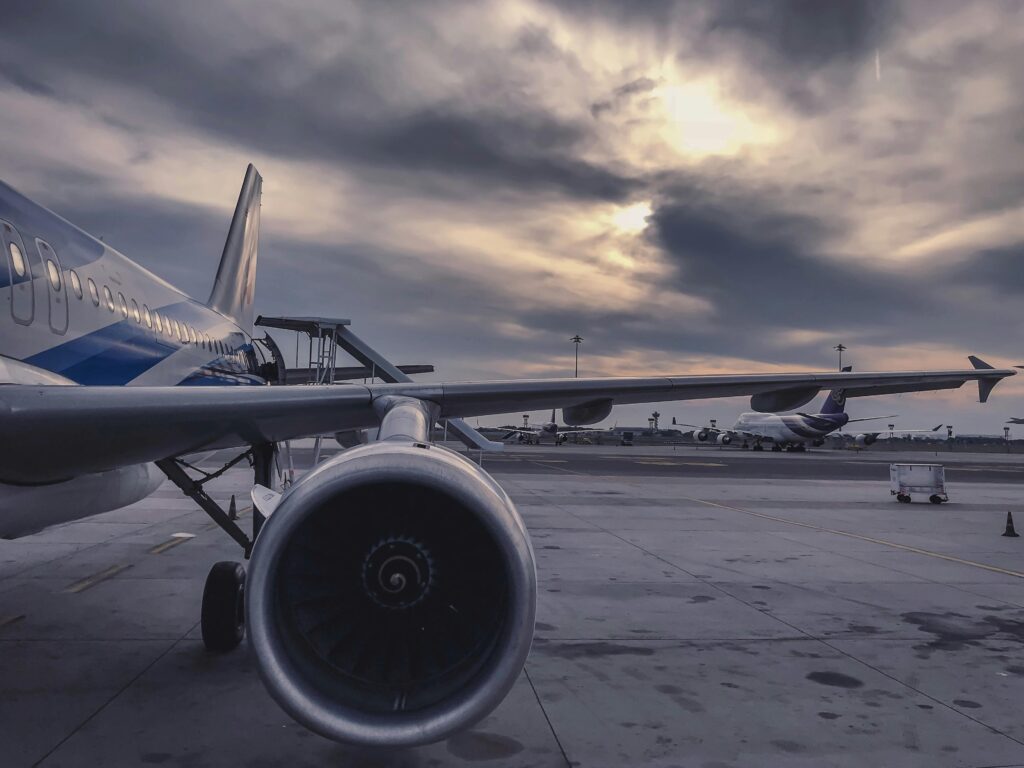A canceled flight doesn’t have to mean chaos. Whether it’s due to weather, schedule shifts, or a sudden change in plans, knowing how to rebook your flight the right way can turn a potential travel nightmare into a minor detour.
But here’s the catch: not all tickets—and not all airlines—play by the same rules. From hidden fees to last-minute deadlines, understanding your rebooking rights is key to avoiding stress and saving money. This guide gives you a clear roadmap for navigating flight changes, so you can stay flexible, skip the panic, and get back in the air faster.

When and How You Can Rebook Your Flight
There are many reasons why you might need to rebook a flight—unexpected emergencies, airline schedule changes, or simply a shift in your travel plans. Regardless of the reason, the key to a smooth flight rebooking process is knowing your airline’s rules and acting quickly.
Each airline has specific policies regarding rebooking flights, which typically depend on factors like ticket type, availability, and how far in advance the request is made. If your travel plans change, follow these steps to rebook your flight with minimal hassle:
- Check Your Ticket Conditions – Some tickets, especially flexible or premium fares, allow free flight changes, while others, like basic economy tickets, may have strict restrictions or high cancellation fees.
- Log Into Your Booking Portal – Most airlines provide self-service options on their websites or mobile apps. You can access your itinerary, review available options, and initiate a rebooked flight request instantly.
- Understand Rebooking Deadlines – Airlines impose deadlines for modifying bookings. Some allow flight rebooking up to a few hours before departure, while others require changes to be made at least a day in advance.
- Compare Available Options – If your original flight is unavailable, check if alternative domestic flights or different routes are open. Depending on your fare, you may need to pay a ticket price difference when selecting a new flight.
- Contact Customer Support if Needed – If online rebooking isn’t available or you have special circumstances, such as a missed flight due to delays, reaching out to airline support can provide alternative solutions, including air passenger rights-based options.
Being aware of these steps can help you avoid unnecessary stress and additional costs. Acting quickly and knowing how to rebook flight effectively ensures you stay in control of your travel plans.
Does It Cost to Rebook Flights?
The cost of rebooking a flight depends on several factors, including the airline, ticket type, and when you request the change. While some passengers can rebook a flight for free, others may face cancellation fees or price differences when modifying their booking.
Factors that affect the cost of flight rebooking:
- Ticket Type and Fare Class – Flexible and premium fares often allow free flight changes, while basic economy tickets usually have strict non-changeable policies. Some airlines offer discounted fare classes that require a fee for modifications.
- Timing of the Rebooking – Many airlines have deadlines for making changes. Last-minute flight rebooking may come with higher fees, while making adjustments well in advance can sometimes be free.
- Airline’s Policy on Schedule Changes – If the airline cancels or reschedules your flight, you may be entitled to a rebooked flight without any extra charge. In some cases, passengers can also request a refund or flight compensation under air passenger rights regulations.
- Price Difference for New Tickets – Even if the airline allows free changes, you may still need to pay the ticket price difference if your new flight is more expensive than the original one. Conversely, airlines rarely refund the difference if the new fare is cheaper.
- Rebooking During Disruptions – Some airlines waive rebooking flight fees during major disruptions, such as severe weather or industrial strikes. If your flight is affected, check the airline’s official communication for special rebooking options.
To avoid surprises, always review your airline’s rebooking terms before purchasing your ticket. Some travelers also opt for trip cancellation insurance to cover unexpected changes without financial losses. Additionally, if your flight is cancelled, you may be eligible for financial compensation under EU Regulation 261/2004, depending on the circumstances.
What You Should Know About Airline Policies for Rebooking Flights
Every airline has unique flight rebooking policies, which can affect your ability to modify your travel plans. Understanding these rules helps you make informed decisions and avoid unnecessary fees.
Key airline policies to consider:
- Ticket Validity & Fare Rules – Some tickets allow rebooking within a set period, while others are non-transferable. Economy fares usually have strict conditions, whereas business and first-class tickets offer more flexibility.
- Rebooking for Canceled Flights – If an airline cancels your flight, you’re typically entitled to a rebooked flight at no extra cost. Depending on the airline and local regulations, you may also qualify for a refund or flight compensation.
- Alternative Flight Options – If your original flight is unavailable, airlines may offer rerouting or different domestic flights. However, this can extend your total travel time.
- Name Changes on Tickets – Some airlines allow ticket transfers to another person, but this often incurs a fee. Budget carriers usually charge higher amounts for name changes.
- Rebooking Through Third Parties – If you booked via a travel agency or third-party site, you may need to contact them directly for flight rebooking. This can involve additional service fees or longer processing times.
Rescheduling Your Flight

Changing your departure date is often the easiest way to adjust travel plans without canceling your ticket. Most airlines allow you to rebook a flight online or through customer service.
How to reschedule your flight efficiently:
- Check Airline Policies – Some airlines allow unlimited changes, while others charge a flight change fee.
- Modify Your Booking Online – Most airlines let you view available dates and complete flight rebooking via their website or app.
- Be Aware of Price Differences – If your new ticket price is higher, you must pay the difference. Refunds for cheaper flights are rare.
- Act Quickly to Save Money – Early rebooking often costs less than last-minute changes.
Rescheduling is a simple way to keep your travel plans flexible without canceling your flight.
Transferring Your Ticket to Another Traveler
If you can’t use your ticket, some airlines allow you to transfer it to another passenger. However, this option is limited and often comes with extra charges.
Key considerations for ticket transfers:
- Check Name Change Policies – Some airlines, especially budget carriers, allow transfers for a fee, while full-service airlines often prohibit them.
- Expect Additional Fees – Name change fees can be high, sometimes nearing the cost of a new ticket.
- Time Restrictions Apply – Many airlines require transfers to be made at least 24–48 hours before departure.
- Third-Party Bookings May Be Restrictive – If booked through a travel agency, you may need to go through them to request a transfer.
Before transferring a flight ticket, compare costs to ensure it’s a worthwhile option.
Canceling Your Flight and Securing a New Booking
In some cases, canceling and booking a new flight is the best option, especially if it saves you money or better fits your schedule.
When should you cancel instead of rebooking:
- Your Flight No Longer Fits Your Plans – If your itinerary has changed completely, booking a new ticket may be more practical.
- The Airline’s Cancellation Policy is Favorable – Some premium fares allow refunds, making cancellation a cost-effective choice.
- You Find a Cheaper Alternative – You can cancel a flight and rebook for cheaper if the price difference outweighs any cancellation fees.
- You Have Trip Cancellation Insurance – If your reason for canceling is covered, you may qualify for a refund.
Before canceling, check refund eligibility and compare all available options to minimize costs.
FAQ
If you miss the deadline to rebook a flight, options depend on your ticket type. Non-refundable tickets may be lost, while flexible fares allow last-minute changes. Some airlines offer same-day flight rebooking for a fee. If you missed your flight due to an airline flight delay, you may qualify for a free rebooking.
Yes, but changes must be made through the booking platform, not the airline. Third-party services may charge extra fees, have stricter policies, and process requests slower than airlines.
Yes, but only if your ticket is refundable or if the airline offers credit. Some non-refundable tickets have high cancellation fees, making rebooking only worthwhile if the price difference is significant.
Fees vary by airline and fare type, ranging from €30 to €200. Some airlines waive fees for flexible fares or airline-initiated changes, but you may still pay a ticket price difference.
